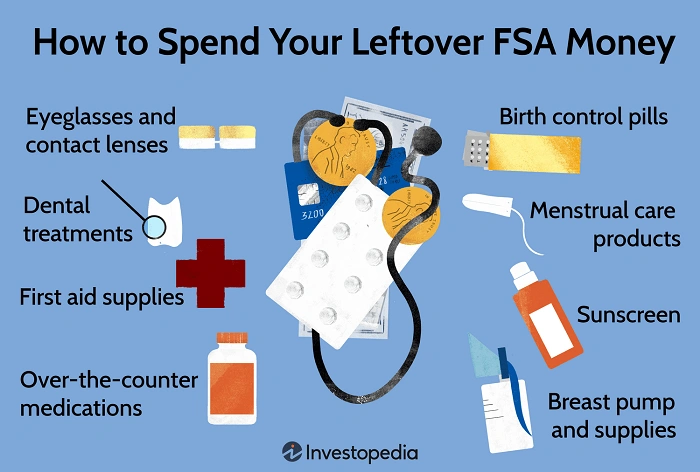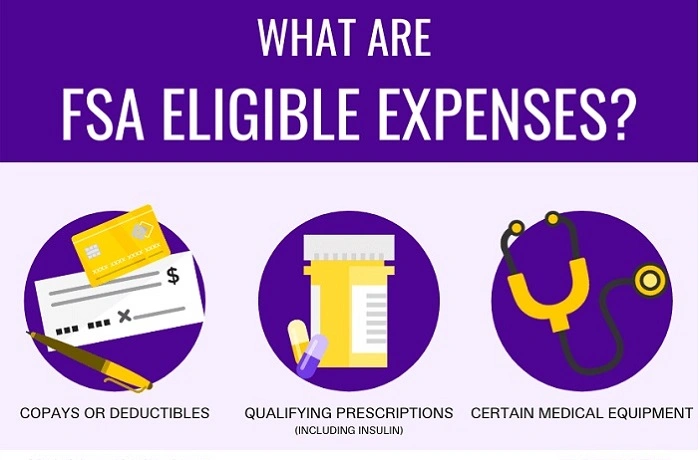A Flexible Spending Account (FSA) is a special savings account that lets you set aside pre-tax dollars to pay for qualified medical and healthcare expenses. Knowing what expenses are FSA eligible is crucial to maximize your benefits and avoid using funds for non-qualifying purchases. This article explains what it means for an expense to be FSA eligible, common examples of eligible expenses, and tips to make the most of your FSA.
What Is an FSA?

Overview of Flexible Spending Accounts
An FSA is an employer-sponsored benefit that allows employees to contribute a portion of their earnings before taxes into an account designated for healthcare-related expenses.
How FSAs Work
Funds contributed to an FSA are deducted from your paycheck pre-tax, reducing your taxable income. These funds can then be used to reimburse eligible medical expenses throughout the plan year.
What Does FSA Eligible Mean?
Definition of FSA Eligible Expenses
FSA eligible expenses are healthcare costs approved by the IRS that can be paid for using FSA funds. These expenses must primarily treat or prevent a medical condition.
Importance of Eligibility
Only expenses classified as FSA eligible can be reimbursed from your FSA account. Using FSA funds for ineligible items may result in tax penalties or require repayment.
Common Examples of FSA Eligible Expenses
Medical Services
- Doctor and specialist visits
- Laboratory fees and diagnostic tests
- Chiropractic care and acupuncture
- Physical therapy and rehabilitation
Prescription Medications
- Prescribed drugs and insulin
- Over-the-counter medicines with a prescription
Medical Supplies and Equipment
- Bandages, first aid kits, and wound care products
- Blood pressure monitors and glucose testing kits
- Crutches, braces, and orthopedic supports
Vision Care
- Eye exams and prescription eyeglasses
- Contact lenses and lens solutions
- LASIK surgery
Dental Care
- Routine dental checkups and cleanings
- Fillings, crowns, and orthodontics
- Dentures and dental sealants
Examples of Non-Eligible Expenses
- Cosmetic procedures (unless medically necessary)
- Vitamins and supplements (unless prescribed)
- General health items like toothpaste or shampoo
- Gym memberships and fitness classes
How to Determine If an Expense Is FSA Eligible

Check IRS Guidelines
The IRS publishes a list of qualified medical expenses that FSAs typically cover.
Review Your Plan Documents
Some employers may have specific rules about eligible expenses.
Use FSA Store or Mobile Apps
Many FSAs partner with online stores or apps that identify eligible products and services.
Consult Your FSA Administrator
Contact the FSA plan administrator for questions about eligibility before making purchases.
Tips for Using Your FSA Wisely
Plan Your Contributions Carefully
Estimate your annual medical expenses to avoid over- or under-contributing.
Keep Receipts and Documentation
Save all receipts and prescriptions for FSA claims and audits.
Use Funds Before the Deadline
FSA funds often have a use-it-or-lose-it policy, so use your balance before the plan year ends or any grace period expires.
Take Advantage of FSA-Eligible Products
Stock up on eligible supplies like bandages or contact lens solution during the year.
Frequently Asked Questions (FAQs)
Can I use my FSA for over-the-counter medications?
Yes, many over-the-counter medicines are eligible if you have a prescription from your healthcare provider.
Are menstrual products FSA eligible?
Yes, menstrual products such as tampons and pads are considered eligible medical expenses.
Is acupuncture covered by FSA?
Acupuncture is generally FSA eligible as a medical treatment.
Can I use FSA funds for my pet’s medical expenses?
No, FSAs only cover medical expenses for the account holder and dependents, not pets.
What happens if I spend FSA funds on non-eligible items?
You may have to repay the amount and could face tax penalties.
Understanding what is FSA eligible helps you make informed decisions about using your Flexible Spending Account funds effectively. By knowing which medical expenses qualify, you can maximize your tax savings and ensure your healthcare needs are covered. Always check your plan details and IRS guidelines before making purchases to stay within eligibility rules.


